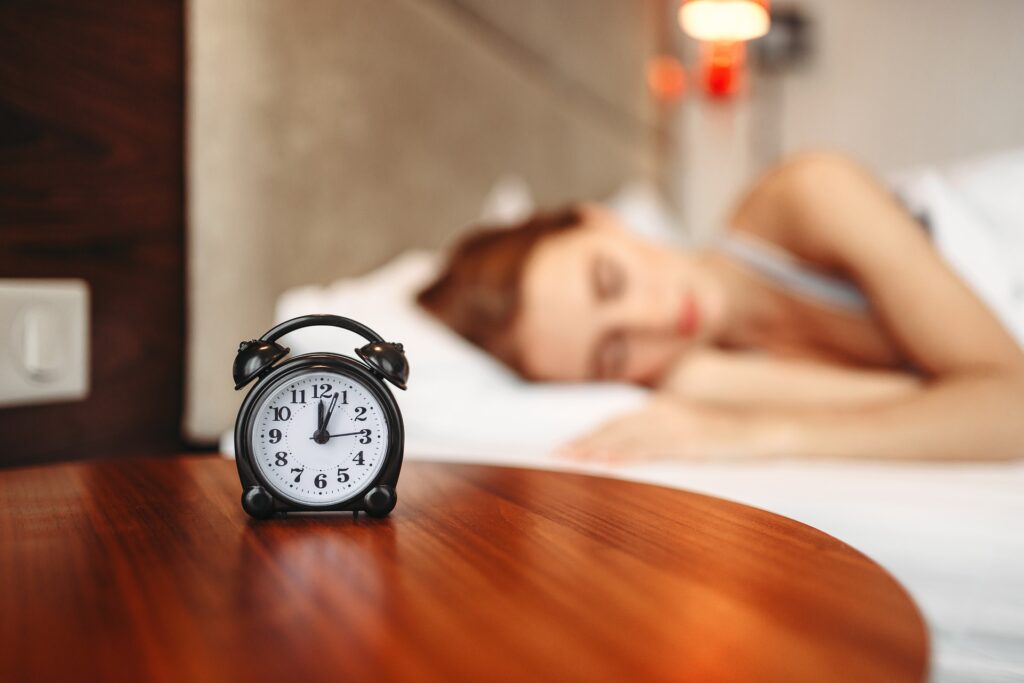Finding the perfect time to regularly fall asleep at has long been thought of as essential for our health. Adults are recommended to sleep around 7-9 hours per night, according to science. The average working adult typically wakes up at around 7am or earlier for a 9-5 job, and often even earlier. This means that, although we may hate to admit it, the earlier we fall asleep, the better.
To get a full night’s 7-9 hours sleep, the average adult should probably be asleep by 10-12pm. This also means that they should be in bed well before that – around half an hour before then. Failing to get the hours needed for a full night’s sleep will result in tiredness the next day. This causes us to be irritable and unproductive the next day. Not only does this have an effect on our mental health, but also our physical health. Research shows that lack of sleep affects our digestive system and immune system, making us vulnerable to getting sick.
Despite this rather well-known health advice, many of us still do not go to bed early. The average American, according to studies, goes to bed around 11:39pm. This, when accounting for the time it takes to fall asleep, will likely not be enough for a typical 7am start. The average American is also shown to get less than seven hours of sleep per night, proving that most of us are not going to bed early enough.
The Link Between Sleeping and Cardiac Disease

Now, there is all the more reason to take this health advice seriously. Not only can going to sleep early improve your mood and your immune system – it could very well save your life. New research has shown that lack of sleep puts you at serious risk of cardiac disease, meaning you risk an early death. For a healthy heart, getting seven hours at the very least is proven to help. Sleep-related illnesses, such as sleep apnea or insomnia, put you at far greater risk of a heart attack.
Sleep apnea affects how much oxygen your body gets while you sleep, and breathing often stops and starts. Results can include high blood pressure, a heart attack, or a stroke – all linked to cardiac health. Insomnia is also known to cause high blood pressure and stress – the conditions that create heart disease. The tiredness that comes with these illnesses only cause further cardiac risk.
Tiredness during the day from lack of sleep also plays a factor. Lack of sleep causes a foggy brain, which often makes us idle and causes our brains to find tasks more difficult. That tired mindset is likely to cause stress, and make us reluctant to exercise. These factors significantly increase your chances of a heart attack, and puts your overall cardiac health at risk.
The “Golden Hour” for Cardiac Health

A new study has highlighted the importance of sleeping early more than ever. This study has made headlines for its findings, using over 80,000 volunteers and being published in the European Heart Journal. The six-year study tracked the volunteers’ bedtimes and sleep cycles, and analysed those who went on to develop cardiac issues.
The research has found that there is a particular “golden hour” when it comes to sleeping early. This is an ideal time to be asleep by, linked to overall better cardiac health. This golden hour is between 10-11pm, seen as the optimal time window to fall asleep during, rather than earlier or later.
The study also found that those who fell asleep at midnight or later had a 25% higher risk of going on to develop cardiac conditions than those at 10-11pm. Those who fell asleep earlier than 10pm had a 24% increase compared to golden hour sleepers. Sleeping too early will also disrupt your overall cycle. As sleeping at a very early time is unlikely to be regular, also contributing to cardiac issues. Going too late means you may be missing out on essential natural sunlight, which also causes problems for keeping a consistent sleep cycle.
This golden hour is at an ideal time for our biological sleep-wake cycle, according to these new finding. This is known as a circadian rhythm (or circadian cycle). The cycle is a 24-hour cycle that is part of your natural body clock. When your sleep-wake cycle is consistent, and at a specific optimum time, according to studies, it can be highly beneficial. This includes greater alertness during the day and better though process. As new research shows, going to sleep at the right time in the cycle affects our overall health. Disruption to our body’s natural process round the clock appears to increase our chances of heart disease.
So, How Can I Achieve Sleep During the Golden Hour?
Getting into a sleep routine and creating a regular time to fall asleep at is the best thing you can do to achieve an early night. When you have a regular bedtime, your body will associate that time of the night with sleep. This is because a sleep hormone called melatonin is released as part of your sleep-wake cycle. Melatonin, when released, signals to the body that it is time to fall asleep. Training the body to adhere to a regular sleep schedule can help release melatonin a. Ensuring hormonal consistency will help ensure a natural, regular bedtime.
It is also important to eliminate any stress that may be keeping you awake at night. A mind that is racing with negative thoughts will make it more difficult to fall asleep at the right time. Anxiety not only affects cardiac health in itself, but can contribute to sleep-related conditions such as insomnia. See our guide to eliminating anxiety before bedtime for help.
As shown in the guide, seemingly trivial things like exercise and levels of artificial light before bed can make a huge difference to your sleep-wake cycle. Small things throughout the day can add up and affect your sleep, and ultimately, your health. It is worth assessing your lifestyle as a whole and how it can affect your sleep and how tired you feel during the day. This is the best way to make a distract difference to your overall energy, mood, and health.







